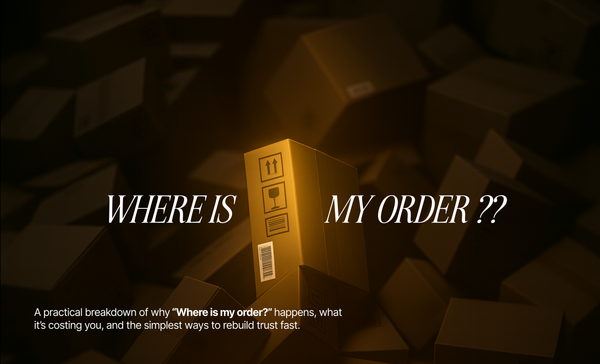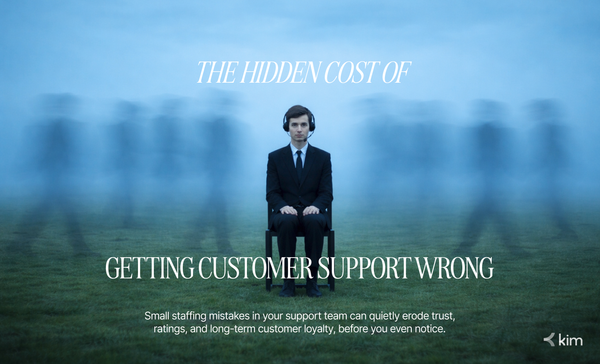Startup Success: Laying the Groundwork for Customer-Centricity with CRM
Startup Success? Don't Forget Customers! Implement a CRM to build strong relationships, gain valuable insights & fuel growth. Learn how: Kim.cc #startup #CRM #customercentricity

In the exhilarating early days of a startup, the focus often lands squarely on product development, market validation, and securing funding. But while these aspects are crucial, a critical element for long-term success can sometimes get overlooked: building strong customer relationships. This is where a Customer Relationship Management (CRM) system comes into play.
Key Takeaways
- Why Startups Need a CRM (Even From Day One)
- Choosing the Right CRM for Your Startup
- Building Your Customer Database
- Creating a Customer-Centric Culture
As a company dedicated to empowering startups with the tools they need to thrive, we believe that even in the early stages, implementing a CRM system can be a game-changer. Here's why:
Why Startups Need a CRM (Even From Day One)
Startups are often lean and agile, with limited resources. This can make the idea of a CRM seem like an unnecessary complication. However, a good CRM acts as the central nervous system of your customer interactions. It allows you to:
- Capture Valuable Customer Data: From initial contact details to purchase history and communication preferences, a CRM helps you build a comprehensive picture of your customers. This data is invaluable for understanding their needs, personalizing your communication, and providing exceptional service.
- Streamline Workflows: Managing leads, nurturing relationships, and following up with customers can quickly become chaotic without a central platform. CRM systems automate these tasks, saving your team time and effort, allowing them to focus on building stronger customer bonds.
- Gain Valuable Insights: By analyzing customer data within the CRM, you can identify trends, preferences, and areas for improvement. This data-driven approach fuels smarter decision-making and helps you refine your product or service to better meet customer needs.
Choosing the Right CRM for Your Startup
With a vast array of CRM options available, selecting the right one for your startup requires careful consideration. Focus on three key factors:
- Scalability: Choose a CRM that can grow with you. Look for solutions that offer flexible plans allowing you to scale functionality and storage as your customer base expands.
- Affordability: Cost is a significant concern for startups. Consider free or low-cost CRM options initially, then transition to a more comprehensive solution as your revenue increases.
- Ease of Use: A complex CRM can hinder adoption within your team. Prioritize solutions with a user-friendly interface and intuitive features that your team can easily learn and utilize.
Building Your Customer Database
Your CRM is only as effective as the data it holds. Here's how to build a robust customer database:
- Collect Data Ethically: Always obtain customer consent before gathering information. Be transparent about how you use their data and offer clear opt-out options.
- Go Beyond the Basics: While contact details and purchase history are essential, capture additional data points like interests, preferences, and feedback. This allows for more personalized customer interactions.
- Maintain Data Accuracy: Regularly review and update customer data to ensure its accuracy. Inaccurate data leads to poor decisions and potentially negative customer experiences.
Creating a Customer-Centric Culture
A CRM is just a tool. True customer-centricity requires a cultural shift within your organization. Here's how to empower your team to prioritize the customer experience:
- Align Everyone Around the Customer: Emphasize the importance of customer satisfaction throughout your organization. Make customer feedback a core part of your decision-making process.
- Invest in Employee Training: Train your team on using the CRM effectively to manage customer interactions efficiently and provide exceptional service.
- Empower Your Team: Give your employees the autonomy and resources they need to resolve customer issues promptly and proactively.
Conclusion
Building a customer-centric culture from the very beginning is a key differentiator for startups. By implementing a CRM early on, startups can capture valuable customer data, streamline workflows, and gain valuable insights. This, in turn, allows them to make data-driven decisions that enhance the customer experience and fuel sustainable growth.
Remember, Kim.cc is here to equip your startup with the tools and resources you need to thrive. Reach out to us today to learn more about how a CRM system can empower your business to build strong customer relationships and achieve long-term success.



